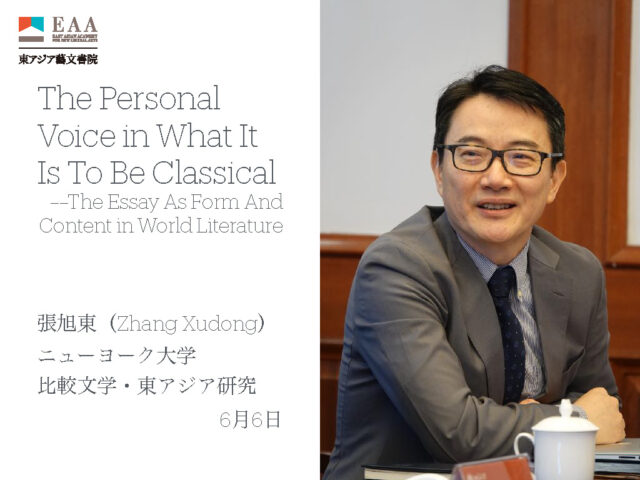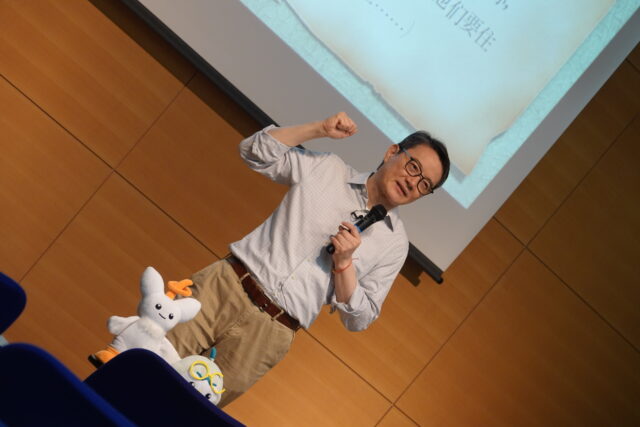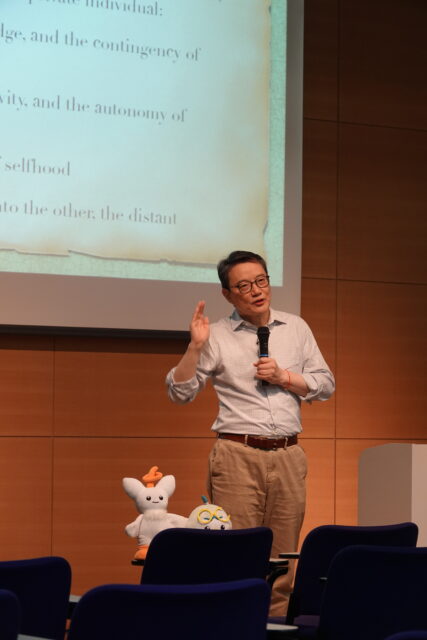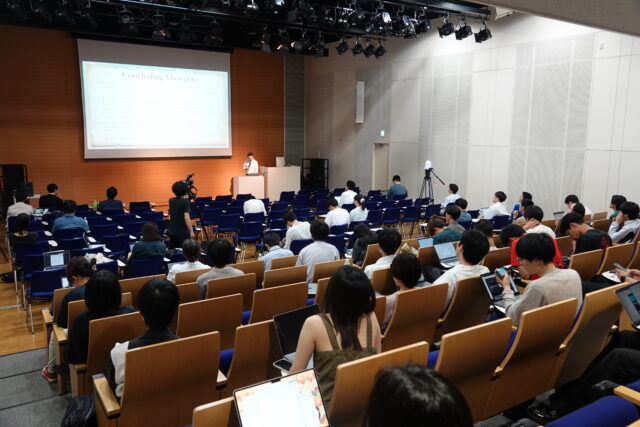
On June 6, 2025, the eighth lecture of the 2025 Academic Frontier Lecture Series, titled “Toward the World 30 Years from Now — The Changing Kyōyō, the Changeable Kyōyō,” was held in the Lecture Hall of Building 18 on the Komaba campus. The lecture was delivered by Professor Zhang Xudong, under the tiltle “The Personal Voice in What It Is To be Classical—The Essay As Form and content in World Literature “

Using Lu Xun’s essay “The Rose Without Flowers” as a case study, Professor Zhang explored how classical habits surface within modern narrative forms. In this piece, Lu Xun’s sharp critique of the nation, as well as his intense anger and despair, is articulated through historically grounded stylistic choices and moral-cultural conventions. The essay weaves together themes of social conflict, resistance, economic structures, all of which reflect the influence of modern, Westernized vocabulary and conceptual frameworks. At the same time, it exudes moral indignation and traditional value judgments, resonating with a strong classical sensibility.
Professor Zhang further elaborated on the similarities between Lu Xun’s prose and Ji Kang’s “Letter of Separation to Shan Juyuan,” and pointed out stylistic traces of French Enlightenment philosophers present in Lu Xun’s writing. He argued that modern prose, imbued with individualistic of consciousness and the notion of the private self, is interwoven with the depersonalized forms of classical writing.

Focusing on the political and social critique embedded in the prose of both Lu Xun and Ji Kang, I seek to raise the following question: How can prose engage in dialogue with contemporary sociopolitical contexts? How should we confront the vulnerability that inevitably accompanies the act of writing under a totalitarian regime?
In contemporary China’s sociopolitical landscape, writing is often fraught with threats to personal safety. Writers have been imprisoned or forced into exile for criticizing the government; literary expressions that deviate from heterosexual norms are systematically marginalized and suppressed. In this context, how might contemporary prose inherit the spirit of resistance and critique embodied in Lu Xun’s literature? Can it still respond to, or intervene in literary spaces that fail to accommodate certain emotions or value systems? Given its formal innovations and its responsiveness to a rapidly changing world, can prose preserve its potential for critique, and thereby open up new spaces for resistance or transformation?

Report by Wei, Yun-Dia (EAA Research Assistant)








